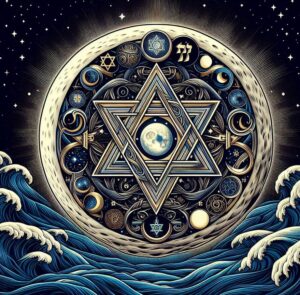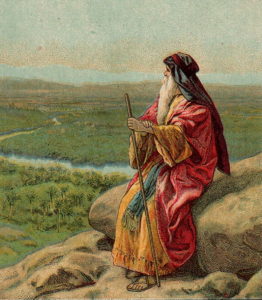 This weekend we welcome the month of Cheshvan and celebrate the first Rosh Chodesh of the new year 5785. In ancient times, the Sanhedrin would officially announce the start of a new month upon sighting of the new moon. Once the Sanhedrin was disbanded, the Sages fixed a set calendar for the millennia ahead. And since then, instead of a formal announcement of a new month upon new moon sighting, we recite a birkat levanah, a “blessing on the moon”. Where exactly did this blessing and practice originate? And what is the meaning behind its enigmatic text?
This weekend we welcome the month of Cheshvan and celebrate the first Rosh Chodesh of the new year 5785. In ancient times, the Sanhedrin would officially announce the start of a new month upon sighting of the new moon. Once the Sanhedrin was disbanded, the Sages fixed a set calendar for the millennia ahead. And since then, instead of a formal announcement of a new month upon new moon sighting, we recite a birkat levanah, a “blessing on the moon”. Where exactly did this blessing and practice originate? And what is the meaning behind its enigmatic text?
The earliest source for birkat levanah is thought to be a passage in the tractate Sanhedrin. Amidst a discussion of examining witnesses in a Jewish court, the Talmud asks a side-question: “Until when may one recite the blessing on the new month?” (41b) Two answers are given, one that it should be recited within the first week of the month (seven days) and another that it can be recited until just after the full moon, ie. the sixteenth day of the month, since at that point the moon begins to wane. Continue reading

